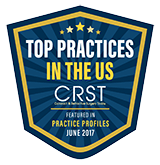Have you been thinking about having LASIK? Are you unsure if it’s the right time to have the vision correction procedure?
If you’re considering LASIK and you’re a good candidate, there’s no reason to wait! So many of our LASIK patients at Williamson Eye tell us, “I can’t believe I’ve waited so long to do this!” LASIK can change your life by giving you total visual freedom and incredible, crystal-clear vision for many years.
There are some things to remember about age if you’re considering getting LASIK. You must meet a minimum age requirement before having LASIK per FDA guidelines.
There are also other factors that go into your candidacy for LASIK surgery, but the good news is that even if you aren’t a LASIK candidate there are several other procedures that may be a better fit for you at Williamson Eye Center.
Keep reading to find out the best age for having LASIK and if you may be a good candidate for the procedure!
Age Requirements

You must be at least 18 years old to undergo LASIK. The vision correction procedure is only FDA-approved if you’re at least 18 years old.
Your vision is still changing while your body is developing and growing. Although LASIK permanently changes your vision, you need a stable prescription for a year or more before you can have the procedure.
If you have LASIK while your eyes are still changing, the procedure will be far less effective. LASIK is only designed to correct your current refractive errors.
Once you’re 18 or older, your eyes should be more stable. However, being 18 doesn’t guarantee you’ll immediately be a good candidate for LASIK. Your surgeon will want to see a history of your prescription to determine stability before performing the procedure.
Vision Stability
Your vision needs to be stable no matter what your age and your surgeon should always assess your prescription history before recommending LASIK.
Stable vision is essential to achieving the best results possible when you have LASIK. Getting LASIK won’t be as effective if your vision is still changing and you’re more likely to need a touch up procedure if you have LASIK before your eyes are stable.
While our eyes are typically fully developed by age 18, there is no guarantee that once you turn 18, you’ll always have stable vision. Many people with refractive errors have frequent prescription changes through their early to mid-20s.
Depending on the LASIK surgeon, they may require you to have a prescription that’s stable and remained unchanged for at least one to two years. However, if you’re 18 or older and have stable vision, you may be an excellent candidate for LASIK. In this case it’s definitely worth having a free consultation and to see if the time is right for you.
Other Requirements
Age is only one of many requirements for being a good candidate for LASIK. Other candidacy factors for LASIK include being in good health and not being currently pregnant or nursing.
You may be a good candidate for LASIK if:

- You have healthy corneas with the right amount of thickness
- You have a prescription that’s within the treatment limits of what LASIK can treat
- You have healthy eyes
- If you have dry eyes, they are already being managed and are under control before having LASIK (at Williamson, we’ll assess this and treat it as needed before your procedure)
- You don’t have any autoimmune conditions like lupus or Sjogren’s syndrome that would make it harder to recover after having LASIK
These are only some of the factors that go into determining LASIK candidacy. If you think you could be a good LASIK candidate, the next step is to schedule a free LASIK consultation at Williamson Eye Center.
When Should You Have LASIK?
When to have LASIK is a personal choice. However, you must be at least 18 with stable vision to meet the requirements of the procedure.
Once you’ve met those and other LASIK candidacy factors, you can have LASIK. Most patients who qualify for LASIK choose to have it right away because they want to experience life with amazing vision for as many years as possible.
If you wait too many years before having LASIK, you may find it’s no longer the best procedure to correct your vision. Although LASIK will permanently correct your vision, it can only correct refractive errors which include nearsightedness, farsightedness, and astigmatism.
What it can’t correct are age-related eye conditions such as the need for reading glasses and cataracts. If you have LASIK, it won’t prevent you from developing conditions like presbyopia or cataracts in the future but there are other procedure options that allow you to keep having great vision for life even beyond LASIK!
Presbyopia is an age-related eye condition that occurs when the eye’s natural lens loses its flexibility. When this happens, you’ll find it more challenging to see things up close. This affects your ability to read a book, text on your phone, or put on makeup.
Procedures like LASIK cannot correct presbyopia. Instead, other procedures like Custom Lens Replacement (CLR) can correct presbyopia and improve your vision and it also eliminates the need for cataract surgery in the future.
Alternative Procedures Instead of LASIK
Although you can technically have LASIK at any age, certain eye conditions due to age may mean you should consider an alternative procedure. Once you’re over 45, LASIK may no longer be your best vision correction procedure.
Even if you no longer qualify as a good candidate for LASIK, you may be a better fit for an alternative procedure instead. These procedures, like Custom Lens Replacement (CLR), can correct presbyopia and improve your vision.
If you’re considering LASIK, it’s important to realize everything that goes into being a candidate and to have it at a time that’s best for you. If you want to improve your life, having the vision correction procedure that’s best for you is an excellent place to start!
We’ll tell you all about your options in a free consultation.
Are you ready to find out if you may be a good LASIK candidate? Find out more by requesting a LASIK consultation at Williamson Eye Center in Baton Rouge, LA, now!



